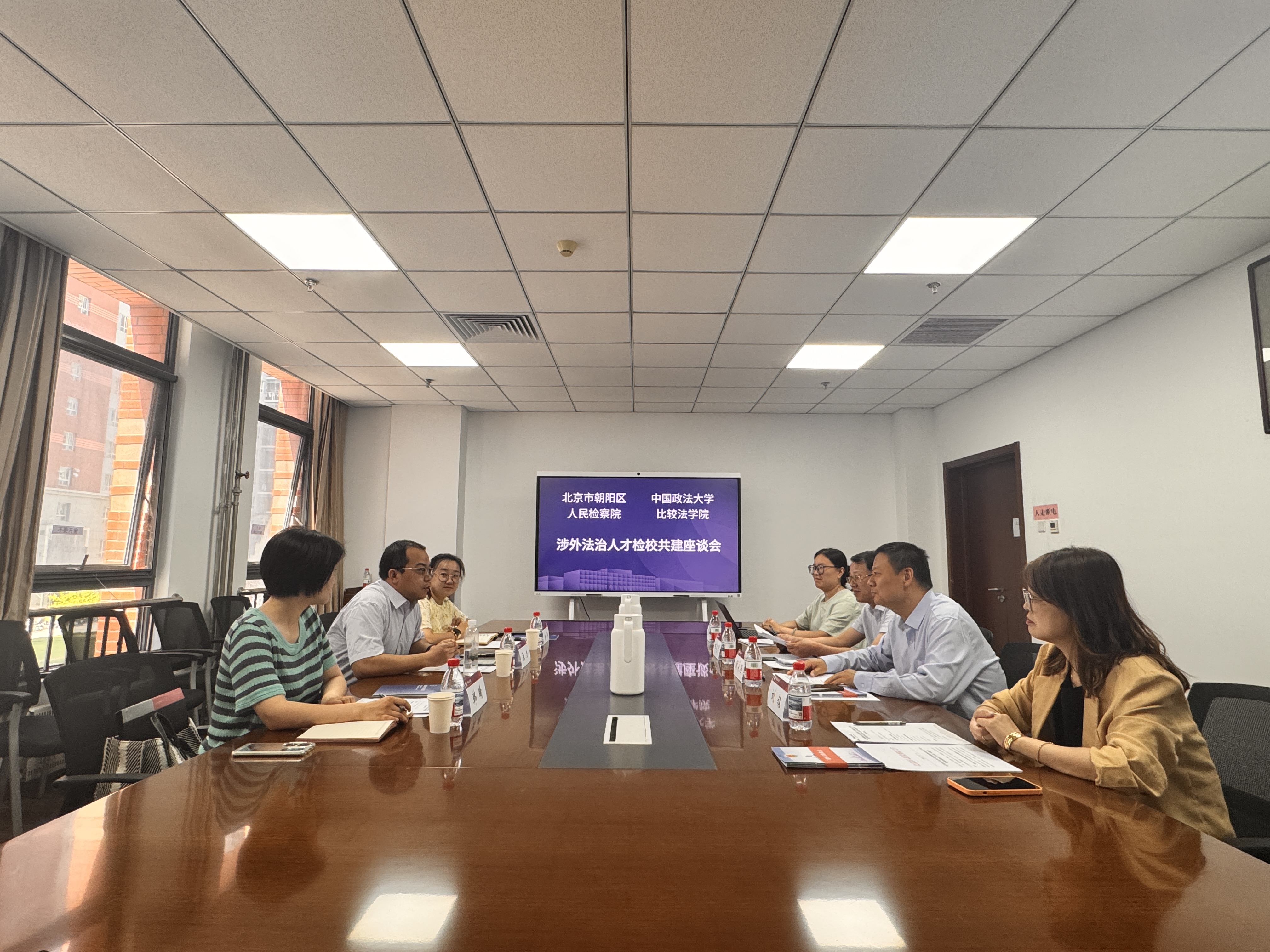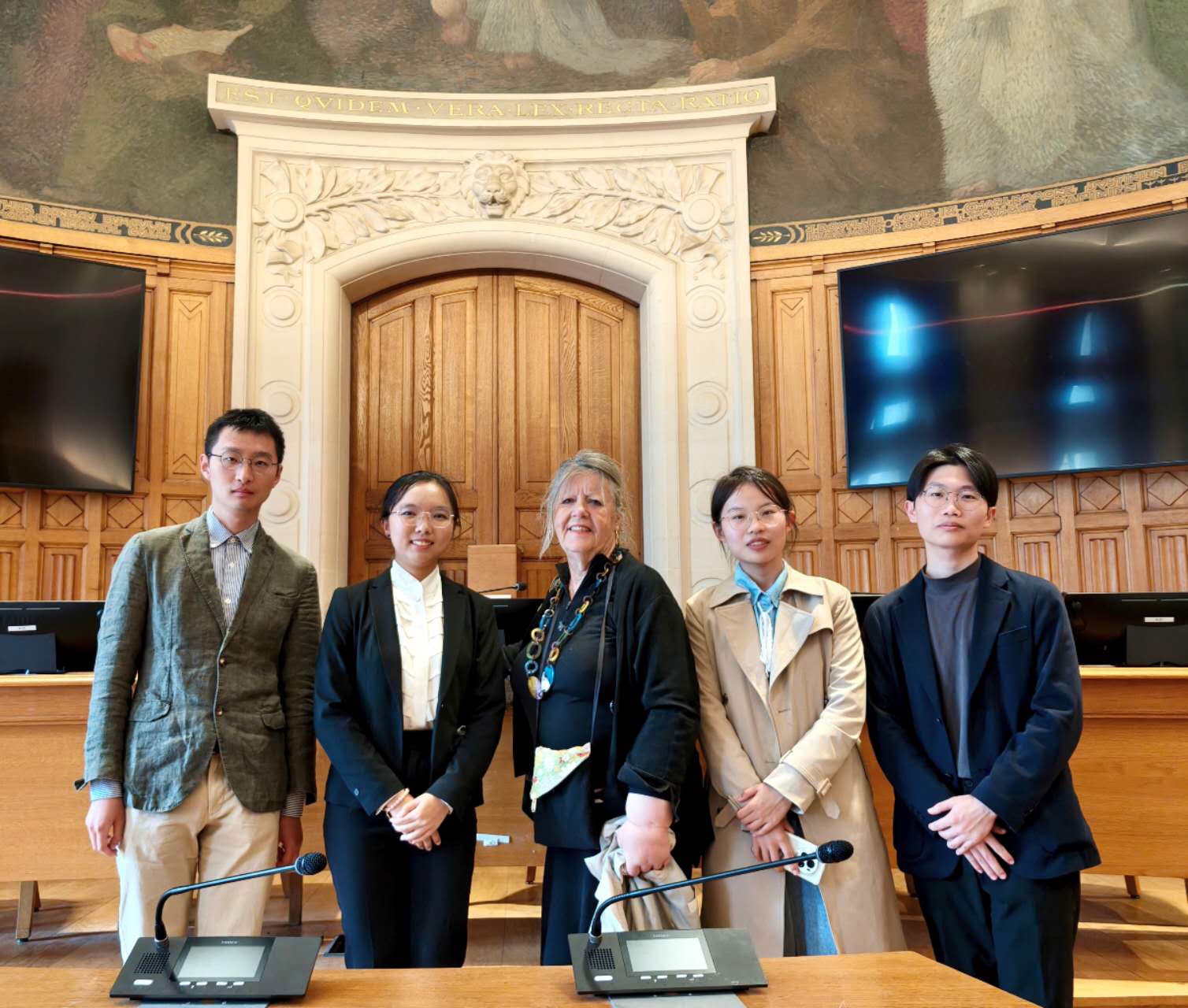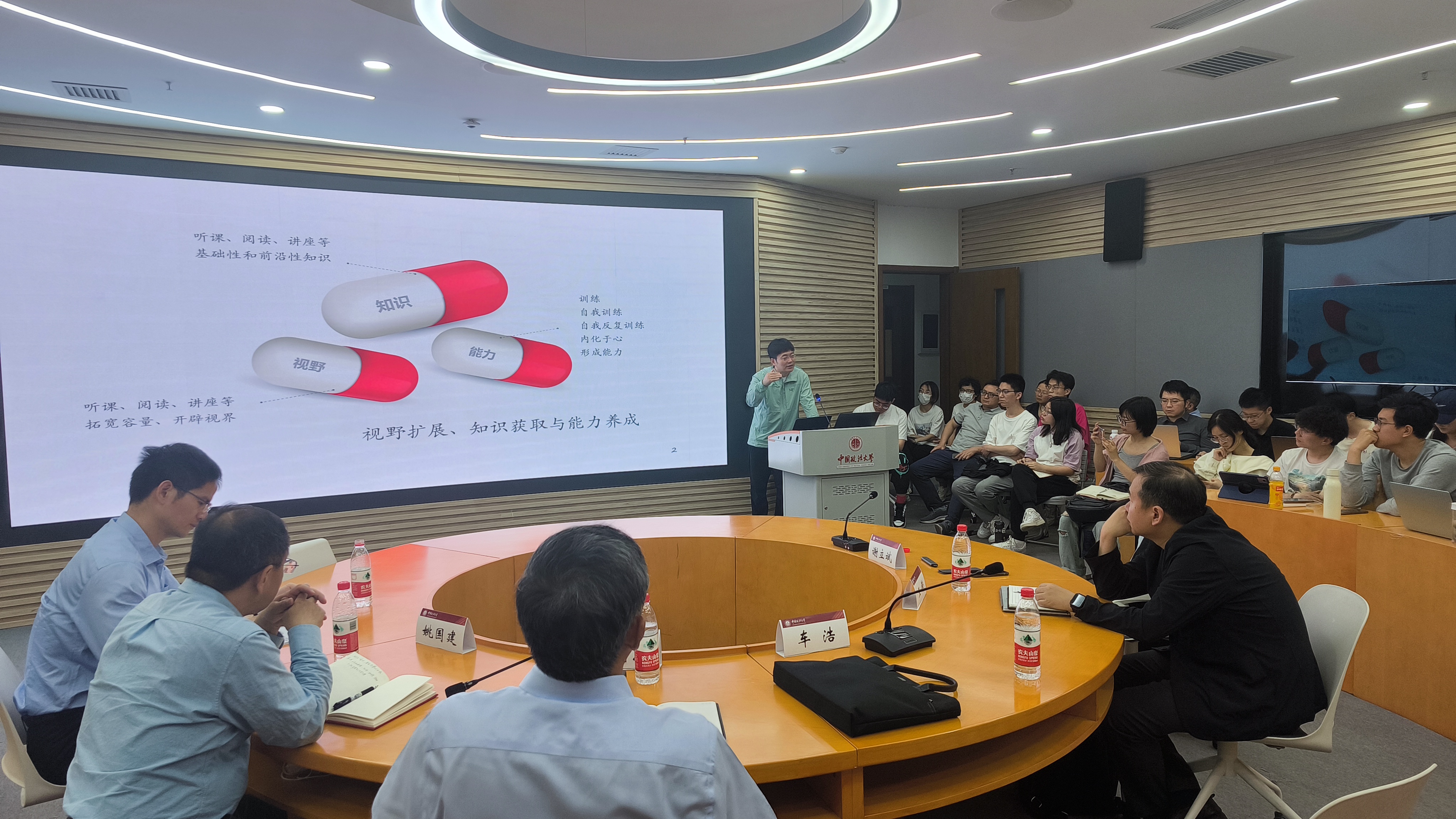The College held a themed faculty-student symposium titled ‘Deepening Reform for Development, Cultivating Talents for Foreign-Related Rule of Law’ from 19-21 March.
The event was part of the University's broader initiative to comprehensively deepen reform and strengthen the training of legal professionals for foreign-related affairs. College leadership and heads of relevant research institutes attended the meetings, engaging in discussions with students from the Internationalised Rule of Law Talent Experimental Class, the China-Germany and China-America & Country-Specific Law Programmes. The meetings were chaired by Yang Mingquan, Secretary of the Youth League Committee.
On 19 March, the meeting with students from the China-U.S. Law Programme was held, with Vice Chair of the College Council Tian Zhaojun and Deputy Director of the China-America Law Institute He Qihao, in attendance. Drawing on his personal experience and recent insights from the ‘Two Sessions’, He Qihao encouraged students to actively participate in international exchanges, broaden their horizons, and strategically engage with the evolving dynamics of China-U.S. relations. He emphasised the importance of national legal awareness and mission-driven learning. Yang highlighted key points in the term’s teaching schedule and accommodation arrangements, provided updates on graduate employment trends in the China-U.S. Law Programme, and offered practical advice on thesis writing, internships, and career planning. He Qihao also responded to student concerns on study abroad opportunities and job searches. In his concluding remarks, Tian reaffirmed the school’s commitment to student-centered development and the continuous enhancement of support systems, urging students to make good use of resources and foster a collaborative learning environment.
On 20 March, the meeting for the Internationalised Rule of Law Talent Experimental Class took place, attended by Chair of the College Council Gu Yongqiang, Dean Xie Zhiyong and Tian Zhaojun. Xie emphasised the importance of cultivating foreign-related legal professionals, offering guidance on institutional context, curriculum structure, writing training and doctoral studies. He stressed the strategic advantage of integrating language and law, encouraged students to foster innovation and academic output, and advised them to focus on professional development and long-term planning to become well-rounded legal professionals with international vision. Gu reflected on the dialectical relationship between “success in knowledge” and “success in character”, and urged students to adopt first-principle thinking, cherish their time at university, and align personal development with national needs. Yang encouraged students to leverage their language skills, plan their postgraduate studies holistically, and manage the balance between thesis writing, bar exams and job hunting. Postgraduate student representatives from various language tracks offered feedback on the training programme, study abroad options and employment concerns. An in-depth discussion followed on how best to cultivate foreign-related legal professionals.
On 21 March, the meeting for students in the China-Germany Law Programme was held, with Deputy Dean Xie Libin and Tian Zhaojun attending. Xie addressed student concerns on time management, curriculum pacing, cooperative projects and career goals, stressing the need to balance German language learning with legal studies, and to build a sound academic and employment plan. For students preparing to study in Germany, he suggested developing individualised learning plans to integrate academic tasks with practical training. Yang provided advice on employment paths and scheduling, encouraged students to maintain determination in their studies and accelerate German language proficiency, and emphasised early thesis completion to fully seize the opportunity of pursuing a master’s degree abroad. In conclusion, Tian affirmed the value of such meetings, encouraged students to maintain open communication with faculty, and urged them to make full use of university resources to plan their graduate journey wisely and meaningfully.
This series of symposiums marked an important measure in College’s implementation of the University reform agenda and postgraduate training innovation. It provided a direct communication channel between students and the college’s leadership, enabling real-time responses to student concerns and valuable feedback on the talent cultivation experience. The sessions also served as vivid lectures, integrating international vision, national strategy, institutional pride, and personal growth, helping students better understand their mission in this era and clarify both their current academic path and future goals. The College remains committed to student-centered development, deepening reform, optimising its talent cultivation system, and nurturing a new generation of high-end legal professionals with global perspectives, innovative capacity, and a strong sense of national responsibility.












